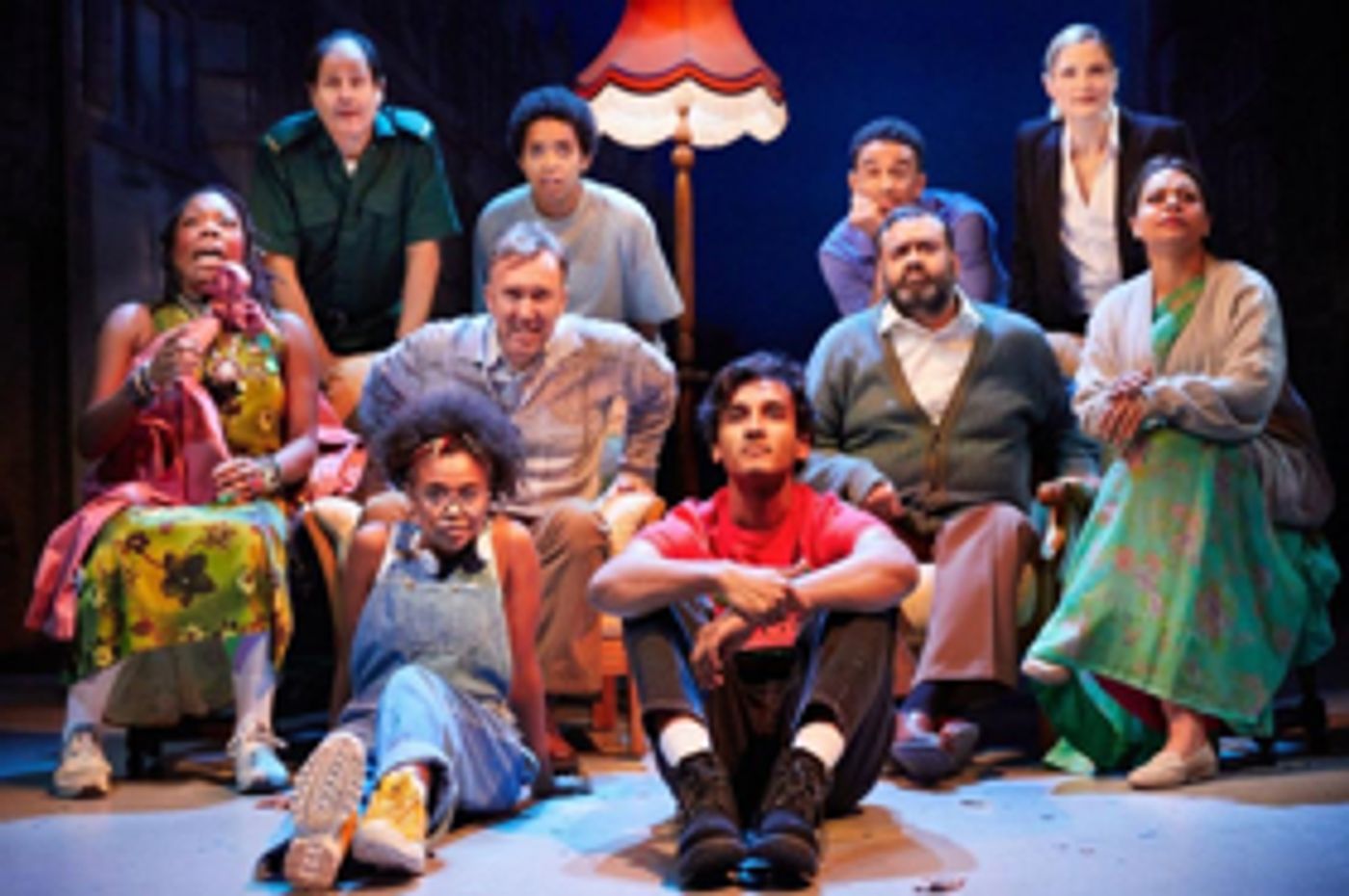Review Roundup: What Did Critcs Think of Zadie Smith's WHITE TEETH?

Zadie Smith's breakthrough novel is adapted for stage by acclaimed playwright Stephen Sharkey and directed by Artistic Director Indhu Rubasingham in a major world première. The production opened on 5 November and runs until 22 December.
Rosie Jones, the Iqbal twins, their parents, their grandparents, Mad Mary and an avalanche of other characters who make up the everyday chaos of Kilburn High Road come together in an extraordinary revelry of NW6. An epic comedy with music and dance, this theatrical rollercoaster takes us on a fast-paced journey through history, different cultures and chance encounters.
The cast includes Ayesha Antoine (Irie Jones), Michele Austin (Mad Mary), Philip Bird(Des/Marc Perret/Marcus Chalfen), Ayesha Dharker (Alsana Iqbal), Naomi Frederick(Ruth/Poppy/Joyce Chalfen), Tony Jayawardena (Samad Iqbal), Richard Lumsden (Archie Jones), Karl Queensborough (Anthony /Denise/Josh Chalfen), Sid Sagar (Magid Iqbal), Amanda Wilkin (Rosie Jones), Assad Zaman (Millat Iqbal), and actor-musicians Matthew Churcher, Nenda Neurer (also Clara Jones) and Zoe West.
Let's see what the critics had to say...
Marianka Swain, BroadwayWorld: There's something of the Mamma Mia! arc to all this, and occasionally the father quest gets in the way of more interesting material; the sprawling novel is teeming with ideas, including colonial history. Dentistry puns and metaphors also land clunkily, and some of Smith's nuance is inevitably lost. On the plus side, Sharkey's adaptation lends plenty of heart (and more female agency) to an action-packed journey, and opens it up to widely relatable ideas like young adults coming to better understand how childhood shaped their parents, and how they in turn either repeated or rebelled against those patterns.
Matt Wolf, The New York Times: Yet not for the first time, a book full of incident and character suffers in the filleting necessary to bring it to the theater. Film may be a more sensible outlet for Ms. Smith's vision of a London populated largely by outsiders who have managed miraculously to coalesce. In fact, a four-part TV version aired here in 2002.
Henry Hitchings, Evening Standard: Punctuated with perky yet largely forgettable songs by Paul Englishby, which aren't helped by an iffy sound balance, it strains hard to be lovable and sometimes succeeds. But often it's cartoonish, lacking the detail of the original, with the result that, while local landmarks are name-checked, there's a limited sense of the community's rich textures.
Matt Trueman, Variety: Yet "White Teeth" suffers the same fate onstage. With a massive amount of story to plough through, Sharkey plonks the bones of its plot onto a bare stage and his script skims, skit to skit, like a speed-read synopsis, darting from suicide attempts to squat parties, bombed-out French churches to family rooms where the entire 1980s unfolds on TV. The TARDIS-style time-hop ups the tumult of a turning world, but it leaves Little Room for anything but cut-out characters, let alone cultural or historical specificity - the details that make "White Teeth" so convincing.
Michael Billington, The Guardian: It is all done with great zest, but the book's dizzying temporal leaps lead to a restless theatrical kaleidoscope in which no scene ever lasts long. The upbeat numbers, echoing the pop styles of different periods, also seem at odds with a story that implies an unnerving connection between genetic engineering and the treatment of immigrants as part of an ongoing project. If the stage version has a moral, it is that we stop agonising over the past and rejoice in the randomness and variety of today's multicultural world.
Paul Taylor, The Independent: On the other hand, you can see why others may have been daunted at the prospect of grappling as a dramatist with this 542-page behemoth with its teeming hybrid of voices, textures and tones and mixture of sprawl and intricately recurring pattern as it examines questions of immigration, identity and Britishness. It's clear that Sharkey loves the book - and is steeped in it. But he pays it the highest compliment in not being rigid with reverence about it. He makes some bold decisions that pay off with a freshness you might not have expected.
Photo Credit: Mark Douet
- To read more reviews, click here!
- Discuss the show on the BroadwayWorld Forum
Reader Reviews
Videos

